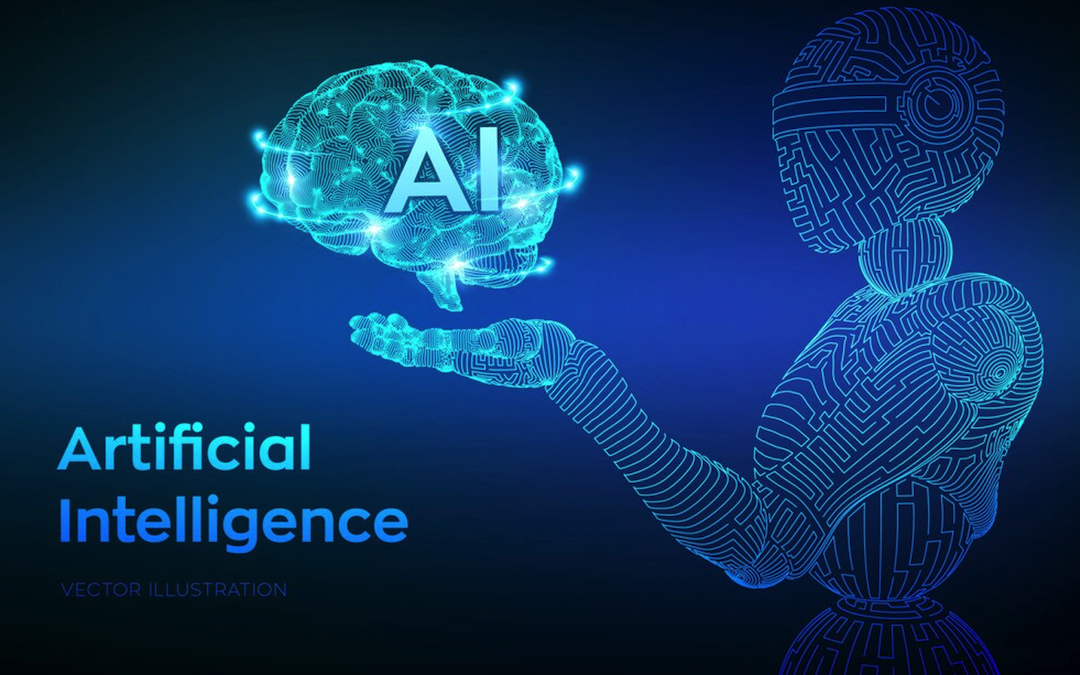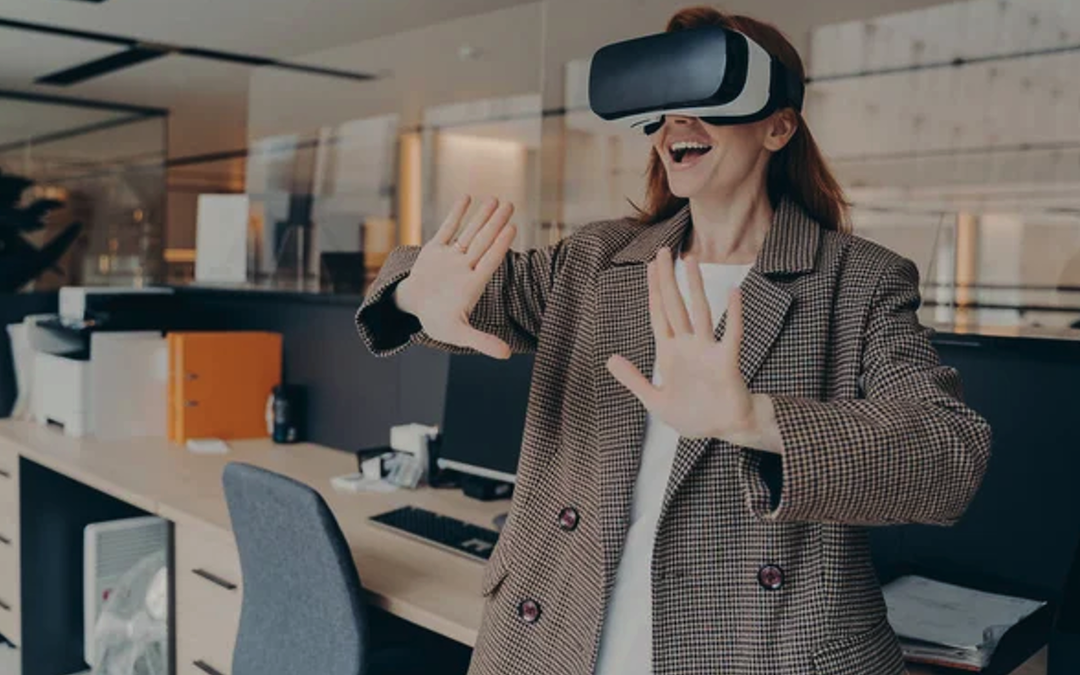
Imagine a world where your job hunt is as easy as asking your phone for the nearest coffee shop—sounds like sci-fi, right? Well, that's the reality AI is bringing to the technology workforce. From seasoned tech gurus to newcomers, using AI will keep you ahead of the curve and ready for whatever the future holds. AI isn't just a futuristic buzzword; it's a game-changer transforming how we work, learn, and grow in the tech industry.
In this blog post, we'll discuss how AI is reshaping the technology workforce, from automating mundane tasks to providing insightful data analysis!
How AI Impacts on Future Jobs?
Artificial intelligence (AI) is reshaping our job market in profound ways. While worrying about AI replacing jobs is natural, the reality is more nuanced. By 2025, about 85 million jobs might change due to AI, but another report predicts 97 million new roles will emerge.
AI isn't just about robots taking over; it's about transforming how we work. These technologies are pushing us towards jobs that emphasize human skills like creativity, empathy, and strategic thinking.
How Is AI Changing the Job Market?

The job market is transforming continuously due to AI, affecting both blue-collar and white-collar roles. Businesses increasingly rely on automation and machine learning, creating new opportunities for tech-savvy professionals.
New career paths are emerging in fields like ethical hacking, data science, cybersecurity analysis, and AI ethics consultancy, thanks to technological advancements driven by AI.
While automation improves productivity in sectors like manufacturing and services, human work is shifting towards areas where machines can't fully replace human intuition and skills.
AI Tools: Revolutionizing Workplaces for Better Productivity
Gone are the days when the idea of 'AI taking over the world' was confined to sci-fi movies. Today, AI is reshaping our workplaces in ways that were once only imagined. But this isn't about robots replacing humans at desks—it's about achieving a 14% boost in productivity.
AI tools handle the repetitive tasks that most of us prefer to avoid, giving us humans the space to be more creative. They're like a helpful friend who cooks dinner while you finish your work—indispensable and supportive.
Machine Learning: Powering Productivity
At the core of this evolution is machine learning (ML). More than just tech jargon, ML drives many of the AI tools that are making waves today. Here’s how:
- Data Analysis: ML algorithms can process vast amounts of data at speeds beyond human capability. This enables businesses to make informed decisions effortlessly, as if on a casual stroll.
- Error Reduction: Unlike humans, machines don’t have off-days. Their precision significantly reduces errors, ensuring high-quality output consistently.
- Trend Prediction: AI systems aren't just reactive; they identify trends, helping businesses stay ahead of the curve.
Using AI doesn’t mean saying goodbye to jobs—it means transforming them for greater efficiency and innovation. While some tedious tasks may be automated, AI opens doors to more fulfilling roles. It's about leveraging AI and ML to enhance productivity across industries, not hinder it.
The Evolution of Human Work in an Automated Age

Remember when grocery shopping didn’t involve self-checkouts or customer service meant speaking to a human on the phone? Times have changed. Once done manually, tasks are increasingly automated, simplifying our lives and boosting enterprise productivity. Less time spent on routine tasks means fewer errors and potentially lower costs—all benefits worth embracing.
In this era, technological advancements aim to streamline operations and enrich our lives and business outcomes. Using automation isn’t about fearing robots but looking forward to a future where technology enhances human potential and productivity.
The Future of Human Roles With Increasing Automation
What does the rise of automation mean for us—the workforce? Are we headed towards a future where jobs become as obsolete as floppy disks? Not at all. Automation is creating new job opportunities requiring creativity, empathy, and problem-solving skills—qualities machines haven't mastered yet.
- Creative Professions: Artists, designers, and anyone who thinks outside the box will find their skills in higher demand than ever.
- Social Interaction Experts: From HR specialists fostering workplace harmony between humans and machines to therapists helping people navigate a digital world, these roles are becoming increasingly vital.
- Tech-Savvy Individuals: As technology continues to evolve, there will always be a need for people who understand it and can leverage it effectively.
Generative AI's Impact on Emerging Economies and Global Markets
Generative AI transforms economies worldwide, catalyzing economic growth, especially in emerging markets. This technology isn't just buzz; it's driving significant advancements in regions eager for development.
In emerging economies, generative AI could boost global GDP by 7%, offering a leapfrog opportunity to skip outdated technologies and embrace cutting-edge innovations.
The global impact of generative AI is profound. While automation may affect around 18% of jobs in advanced economies, it also opens doors to new industries and roles that require human creativity and analytical thinking.
In contrast, emerging markets benefit greatly from integrating generative AI into their infrastructures, accelerating their development without the constraints of legacy systems.
This transformation isn't speculative. Estimates suggest that generative AI could influence around 300 million jobs globally across various sectors, signaling a transformative shift in how societies operate and grow.
Current Trends in Automation Across Industries
Let's explore the world of automation and take a closer look. It's all around us, from self-checkout kiosks in grocery stores to sophisticated AI powering customer service chatbots. But it's more than just convenience; it's a profound shift transforming entire industries.
Businesses are embracing automation eagerly to simplify operations and boost efficiency. While concerns about job displacement exist, they only tell part of the story.
Technological Progress and Its Impact on Future Automation
Automation isn’t new, but its advancements are accelerating. What was cutting-edge yesterday could be outdated tomorrow.
These rapid advancements aren't just about new gadgets or smarter software. They're reshaping jobs and opening doors to innovations we've only dreamed of. Picture fully automated factories or drones delivering pizza—these could become commonplace sooner than expected.
As automation evolves, it changes how we work and influences our daily lives, marking a significant societal shift.
Preparing for Increased Productivity and Economic Growth

Advanced technologies like AI quietly revolutionize industries, driving us toward greater prosperity and efficiency. They may not wear capes, but they're transforming our economic landscape one innovation at a time.
How? By accelerating GDP growth. Every innovative tool or system introduced into workflows doesn't just look good—it speeds up operations, cuts costs, and boosts productivity. This isn't just good news; it's exceptional news because higher productivity fuels economic expansion.
Addressing Workforce Displacement Through Strategic Interventions
We're facing a challenge: workforce displacement won't disappear independently. So, what's the plan? Let's roll up our sleeves and implement strategic interventions like there's no tomorrow.
- Education: First, let's empower people with knowledge. Upskilling programs designed for those most affected by automation ensure everyone can adapt as industries evolve.
- Innovation: By encouraging businesses to innovate, we can create new opportunities beyond traditional roles impacted by automation. Think of roles like AI ethics specialists or data analysts who navigate vast amounts of data with the help of machine learning.
- Safety Nets: Strengthening social safety nets is crucial because transitions can be challenging without them. Providing robust support ensures individuals have a safety cushion when their industry undergoes rapid automation.
Conclusion
AI is revolutionizing our work by taking over repetitive tasks and offering valuable insights through data analysis. This shift allows workers to redirect their efforts toward more creative, strategic, and innovative endeavors. Using AI isn't just about adopting new technology; it's about preparing for a future where AI capabilities complement human skills like problem-solving and critical thinking.
Share this post
Leave a comment
All comments are moderated. Spammy and bot submitted comments are deleted. Please submit the comments that are helpful to others, and we'll approve your comments. A comment that includes outbound link will only be approved if the content is relevant to the topic, and has some value to our readers.



Comments (0)
No comment